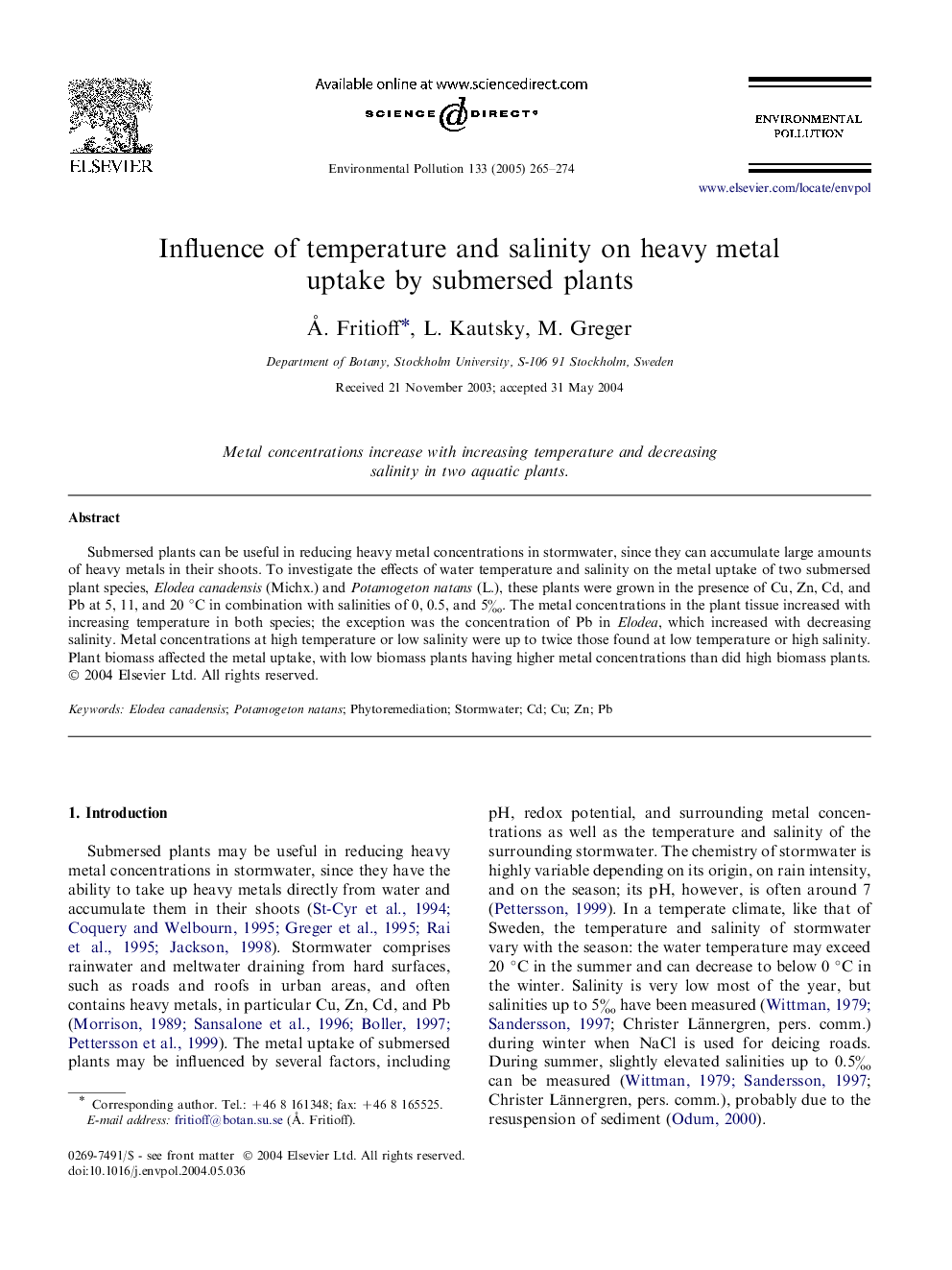| Article ID | Journal | Published Year | Pages | File Type |
|---|---|---|---|---|
| 9456495 | Environmental Pollution | 2005 | 10 Pages |
Abstract
Submersed plants can be useful in reducing heavy metal concentrations in stormwater, since they can accumulate large amounts of heavy metals in their shoots. To investigate the effects of water temperature and salinity on the metal uptake of two submersed plant species, Elodea canadensis (Michx.) and Potamogeton natans (L.), these plants were grown in the presence of Cu, Zn, Cd, and Pb at 5, 11, and 20 °C in combination with salinities of 0, 0.5, and 5â°. The metal concentrations in the plant tissue increased with increasing temperature in both species; the exception was the concentration of Pb in Elodea, which increased with decreasing salinity. Metal concentrations at high temperature or low salinity were up to twice those found at low temperature or high salinity. Plant biomass affected the metal uptake, with low biomass plants having higher metal concentrations than did high biomass plants.
Related Topics
Life Sciences
Environmental Science
Environmental Chemistry
Authors
Ã
. Fritioff, L. Kautsky, M. Greger,
